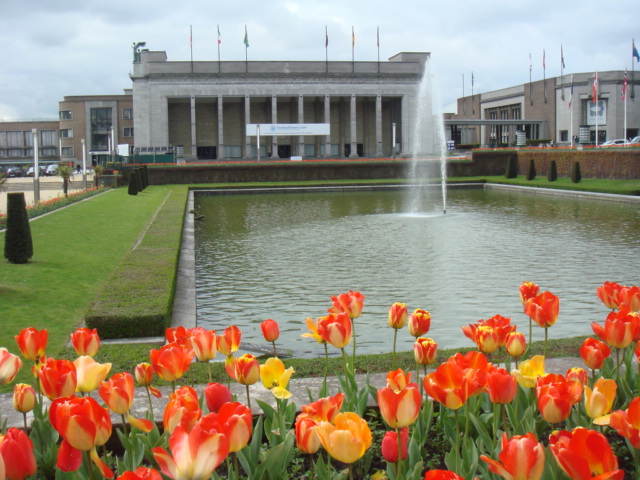เมื่อวันที่ 16-17 มิถุนายน 2554 International cooperation Team หรือที่เรียกสั้นๆว่า INCO Team ได้จัดการประชุม International cooperation projects in Support to Research and Innovation Policies and Competence Building: Good practices, lessons learned and synergies with other programmes ขึ้น ณ กรุงบรัสเซลส์ โดยมีวัตถุประสงค์เพื่อรวบรวมประสบการณ์จากโครงการประสานงานระหว่างประเทศที่มีส่วนช่วยเสริมสร้างศักยภาพและนโยบายด้านนวัตรกรรม ตลอดจนบทเรียนที่ได้จากโปรแกรมอื่นๆที่ดำเนินการสอดคล้องกัน สาระสำคัญของการประชุม สรุปได้ดังนี้
วันที่ 16 มิ.ย. 2554
ช่วงเช้า: เป็นการรายงานผลการดำเนินงานของ INCO management team
ช่วงบ่าย: เป็นการรายงานผลการดำเนินงานแบบคู่ขนาน 2 sessions พร้อมกันคือ Parallel session 1: Mediterranean Region และ Parallel session 2: South-east Asia ซึ่งมี Dr. G.Heinrichs, International Bureau of the German Federal Ministry of Education and Research เป็น Moderator และดิฉันอุษา กัลลประวิทย์ อัครราชทูตที่ปรึกษาด้านวิทยาศาสตร์และเทคโนโลยี ประจำสถานเอกอัครราชทูตไทยประจำกรุงบรัสเซลส์ได้รับเกียรติให้ทำหน้าที่เป็นผู้บันทึกและรายงานสรุปผลการอภิปราย (Rapporteur ) ของ session นี้
วันที่ 17 มิ.ย. 2554
ช่วงเช้า: เป็นการรายงานผลการดำเนินงานคู่ขนานของ Latin America and the Caribbean และ Sub-Sahara Africa
ช่วงบ่าย: เป็นการบรรยายสรุปผลการดำเนินงานในแต่ละภูมิภาคโดย Rapporteur ของแต่ละ session ก่อนจะบรรยายสรุป Impact ของโครงการในแต่ละภูมิภาคสรุปในภาพรวม โดย INCO team อีกครั้งดังนี้
Mediterranean
• INCONET early investment in capacities now generating visible impacts (the network is there!)• Multiplier effect (generation of new projects
• Adopted manuals/guidebook(s) e.g. on technopole
South-East Asia
• Increased cooperation ASEAN-EU (e.g. FP7 participation)
• Better visibility of regional overall S&T capacity
• More and better intra-regional cooperation
Latina America & Caribbean
• Most visible impacts on policy dialogue
• Institutional effects (new units/offices dedicated to International Cooperation in Universities, NCPs for example)
• New Curricula
• Durable networks with critical mass
• Increased personnel exchange/mobility => more joint actions, projects etc.
• Institutional effects (new units/offices dedicated to International Cooperation in Universities, NCPs for example)
• New Curricula
• Durable networks with critical mass
• Increased personnel exchange/mobility => more joint actions, projects etc.
Sub Saharan Africa
• Methodological issues (time lag, attribution)
• Both tangible (skills development, job creation) and intangible impacts (trust building, knowledge exchange) 





No comments:
Post a Comment